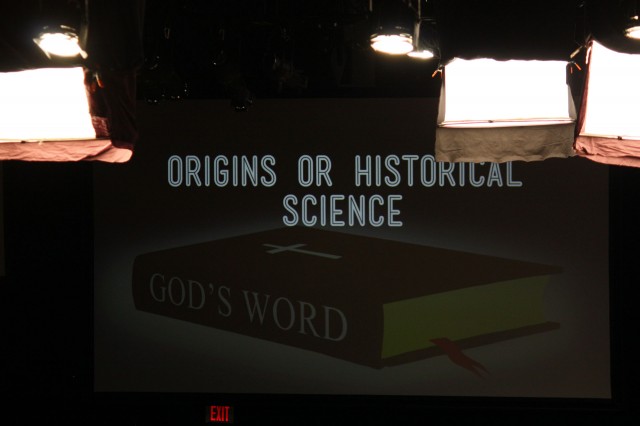Dear Creation Museum, all science is “historical science.” Here’s why
Ars Technica » Scientific Method 2014-02-24

There were many curious moments in last week's Ham-on-Nye debate about creationism—any debate where one side is fundamentally divorced from the reality of deep time will necessarily produce those—but one of them struck at the very nature of science itself. Rather than a single, unified approach to doing science, Ken Ham argued that there were two approaches: the lab-coated science of controlled experiments, and what he terms "historic science." Ham dismissed Nye's arguments by calling him "the historic science guy" and trotted out a number of scientists who claimed that they could successfully go about their work while convinced that the Earth was less than 7,000 years old.
Nye did his best to parry this argument, pointing out that we seem to happily accept a scientific approach to the past when it's in the form of forensic science, and pointing out that because of the vast distances involved in our Universe, light takes long enough to get here that pretty much everything we see happened in the distant past.
But this line of argument deserves more than the quick rebuttal that the debate format allows. Almost all science is fundamentally a reconstruction of the past—the only difference is how far into the past the reconstruction reaches. To argue otherwise betrays an equally fundamental misunderstanding of the nature of experimentation.
Read 19 remaining paragraphs | Comments